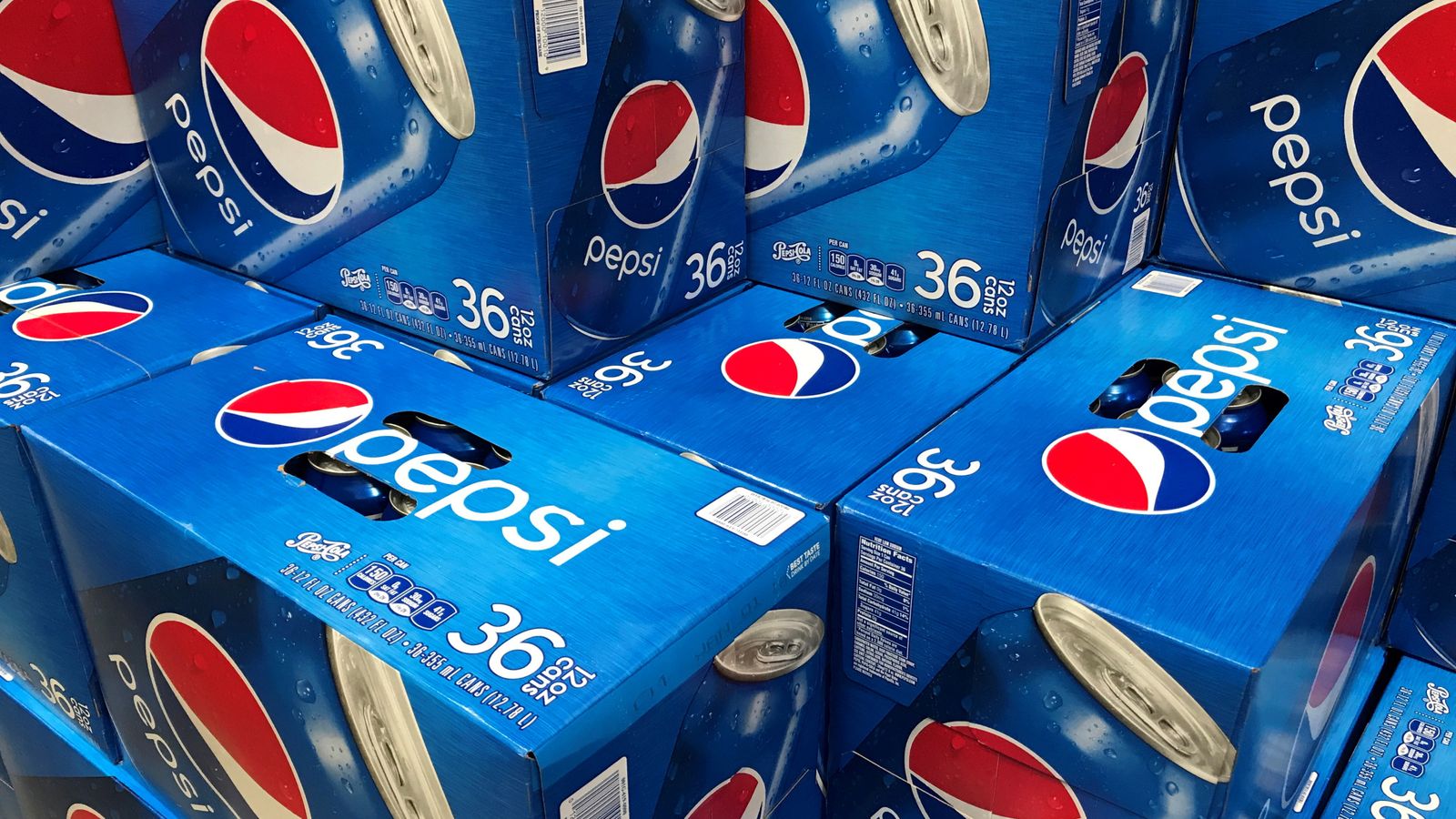One of the largest supermarket chains in France is refusing to sell PepsiCo products on the grounds they have become too expensive to stock.
A spokesperson for Carrefour said the move would apply to its 9,000+ store network across France, Spain, Italy and Belgium.
The chain said it had deployed signs in-store that blamed “unacceptable price increases” for the move.
It marks the latest high profile spat between European supermarket chains and major grocery producers since the cost of living crisis began in the wake of Russia’s war with Ukraine.
Surging wholesale costs for energy and many commodities meant producers were forced to charge more for their goods – often resulting in so-called shrinkflation in a bid to limit the increases.
Last year, Carrefour hung signs to warn customers if goods had been cut in size but grown in price.
Suppliers to UK supermarkets remain under the scrutiny of a Competition and Markets Investigation.
Grocery inflation is running at a higher rate in France than in the UK.
Across the Channel, there have been several attempts by the government to bring the pace of grocery inflation down through negotiations with brands – with limited success.
Further talks are due to conclude by the end of this month.
Carrefour’s decision not only impacts Pepsi’s eponymous soft drink brand but also products such as 7 up, Cheetos and Lay’s crisps.
The Reuters news agency said some products were already not available to customers in Paris.
Be the first to get Breaking News
Install the Sky News app for free
“It doesn’t surprise me at all,” shopper Edith Carpentier said of the boycott.
“I think there will be lots of products left on the shelves because they have become too expensive, and they are all things we can avoid buying.”
PepsiCo, which has raised its profit forecast for 2023 three times, responded: “We’ve been in discussion with Carrefour for many months and we will continue to engage in good faith in order to try to ensure that our products are available.”
The US firm had warned last year that shoppers could expect to see “modest” price increases in 2024.






















